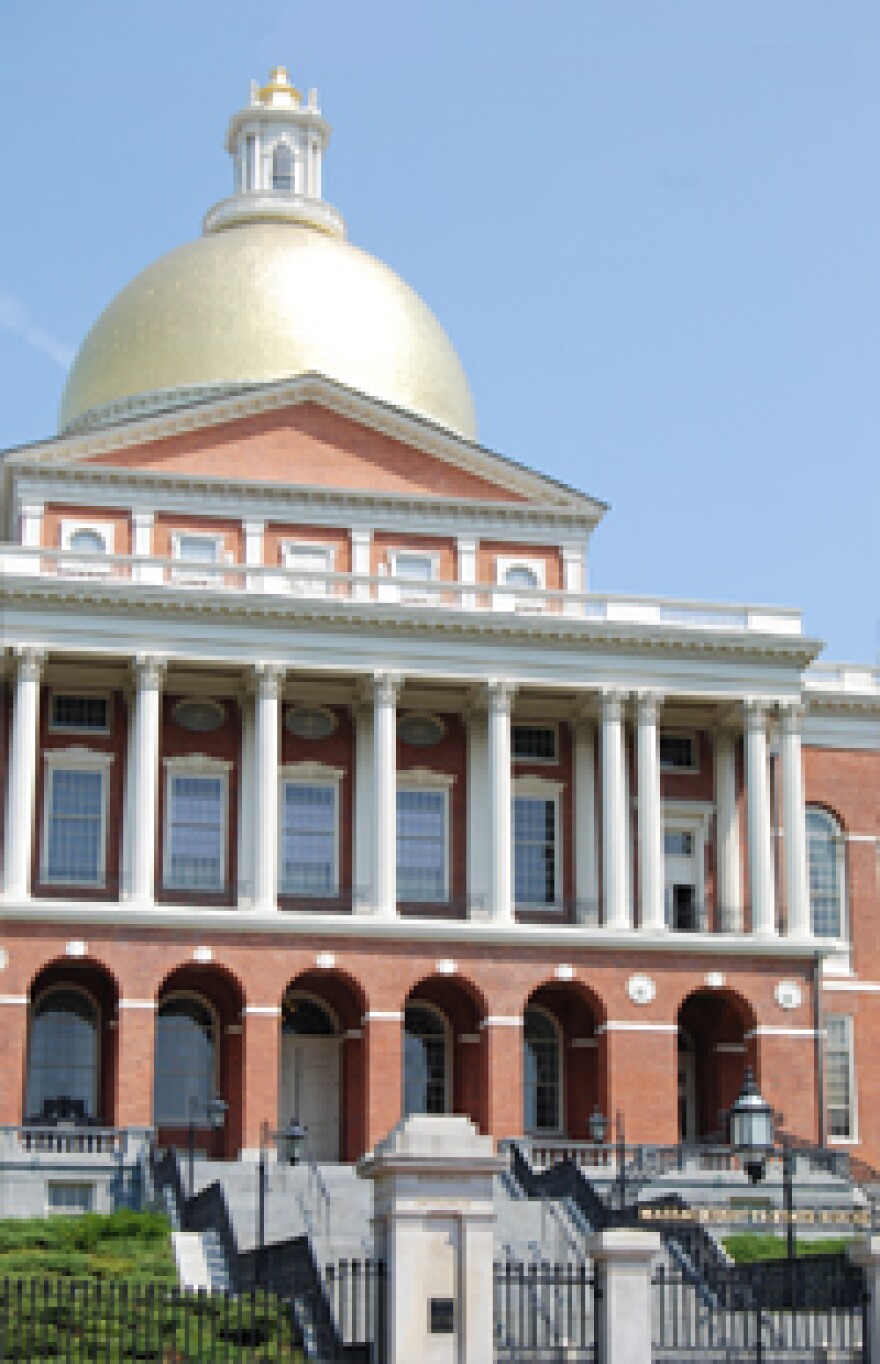Bills are stacking up on Beacon Hill as the Massachusetts Legislature prepares to make its typical rush to the July 31st finish line of the two-year legislative session. Republican Gov. Charlie Baker and the Democratic-dominated legislature seem to be in general agreement on their priorities.
Earlier this week, House Speaker Robert DeLeo and Senate President Harriette Chandler emerged from their weekly meeting with Gov. Baker and told reporters they appear to be on the same page when it comes to what needs to get done before the end of formal legislative sessions.
Topping the list is the state budget, said DeLeo, who then mentioned pending economic development and environmental bond bills, and legislation to address the opioid abuse epidemic.
" It seems like we are making progress toward passing all of those," said DeLeo.
The House and Senate have passed their own versions of a state budget for the fiscal year that starts July 1st. Both call for total spending of roughly $41 billion, but there are lot of differences that will have to be ironed out in a conference committee before a final budget can go to the governor.
It appears likely there will be an economic development bond bill passed that, among other things, would put more money into the popular MassWorks program to pay for local infrastructure projects tied to job creation. An environmental bond bill that includes money to help prepare the state for the impact of climate change also appears likely to reach Baker’s desk for his signature.
The governor is anxious for the legislature to approve a housing bill that would make it easier to change local zoning rules that developers see as an obstacle to housing production.
"We filed it with the support of the builders, the environmentalists, the land use people, and the Massachusetts Municipal Association," Baker said Tuesday in an interview in Springfield. " If we can pass it, we believe we can develop 135,000 units of housing over the next six years or so, which will get us back close to what we used to do here every year, which was 30,000 units of housing."
Baker is also lobbying for a major bill that is a follow-up to the legislation he championed and signed two years ago to tackle the opioid epidemic. The CARE Act is intended to increase access to treatment and put more money into addiction prevention. It would establish professional standards for recovery coaches – people who help patients navigate the health care system and provide moral support often from a first-hand perspective of drug addiction.
But the bill includes a controversial provision that would give health care professionals the power to involuntarily hold, for 72 hours, drug users who are seen as a danger to themselves or others.
"If after 72 hours somebody wants to walk out of that facility, they can," said Baker. " But we think it is important to give people who are deep enough into this that they have overdosed and ended up in the hospital at least once, another path and another option."
Northwestern District Attorney David Sullivan, who chairs the Opioid Task Force of Franklin County, said the involuntary commitment proposal would put hospital emergency rooms in a tough spot.
"We should leave it where it is right now where family members and police can come forward and go through the legal process to commit," said Sullivan.
Efforts are also being made to pass other major legislation.
State Senator Adam Hinds of Pittsfield notes the Senate in November passed a sweeping bill to control rising health care costs, but the House has yet to take it up.
"We've seen the health care act pass which is focused on lowering the cost of healt care and we hope the House moves on that as well," said Hinds.
Also, there is a major bill advancing that State Senator Eric Lesser of Longmeadow said will require businesses and utilities to purchase more electricity that is generated from solar and off-shore wind.
"We've got to continue the forward momentum we've seen on clean energy, so hopefully that will be on the governor's desk before the end of the session as well," said Lesser.
After August 1st lawmakers can still meet in informal sessions, but passing legislation is more difficult because an objection from a single legislator is all that is needed to block a vote.







